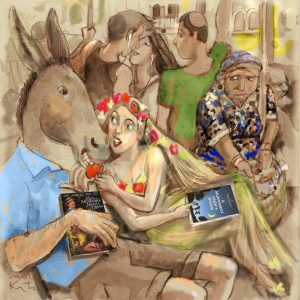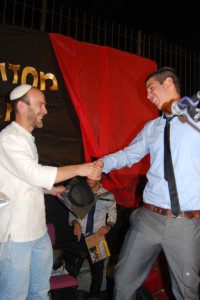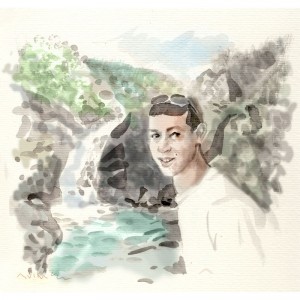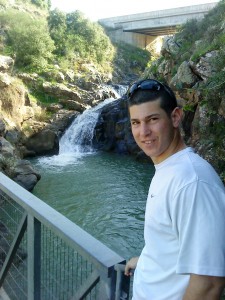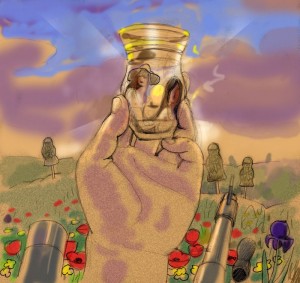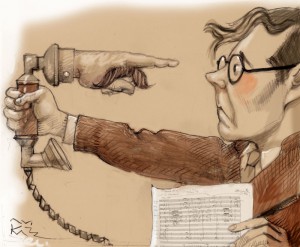Haim Watzman
One very large hand landing on your shoulder is not a good sign at McCloskey’s on 46th Street. Two hands, one on each shoulder, is red alert. And that is what I felt Wednesday night as I was downing a shot of Wild Turkey and wondering whether the blonde doll behind the bar had health insurance. Mrs. McCloskey runs a good bar, but does she provide employee benefits? Could I risk making a pass at a good looker who might not have seen a doctor since she was last in the emergency room with a bloody nose?
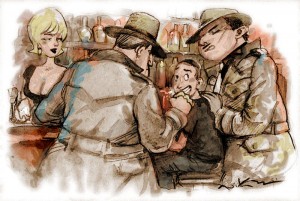
illustration by Avi Katz
I did not look right and I did not look left, just crooked a finger at the girl to show her I needed another shot in my glass. But I could feel the two goons settling onto the stools on either side of me. I could feel their emanations, I mean. What was emanating was “red state,” and “shaft the poor,” with a dash of “corporations are people.” Goons do not need to be seen to be felt, and I mean even before they shove a piece in your backside.
The blonde poured me a shot. I glanced up at her and said: “Gorgeous,
you see these two guys on my either sides? Would you mind telling them to move on?”

